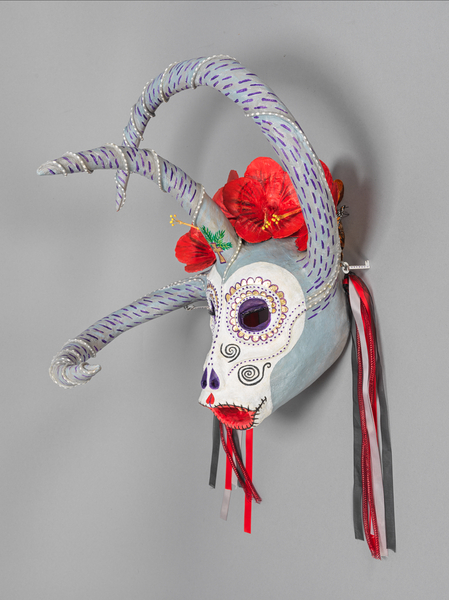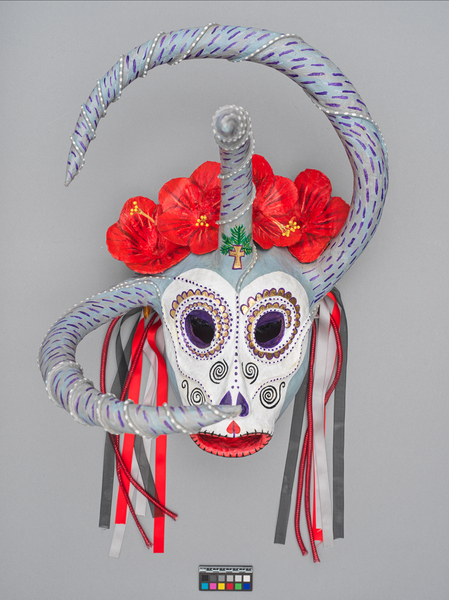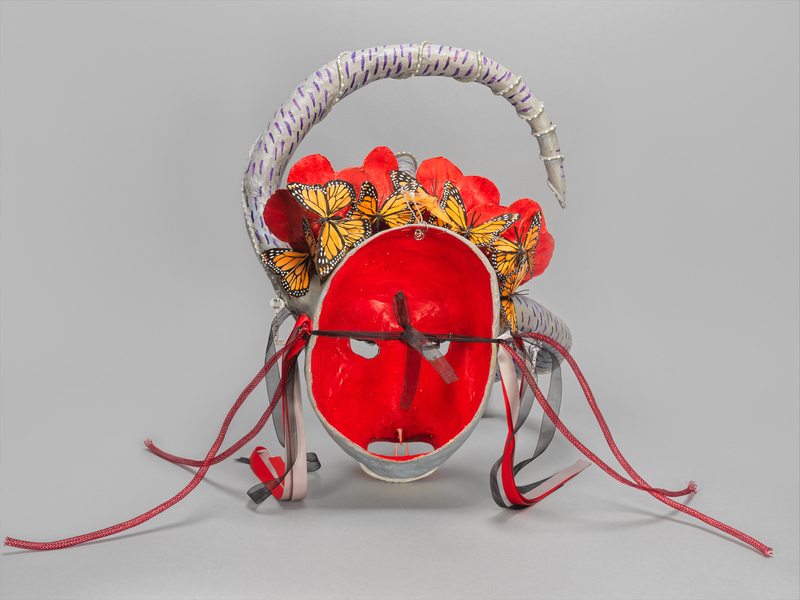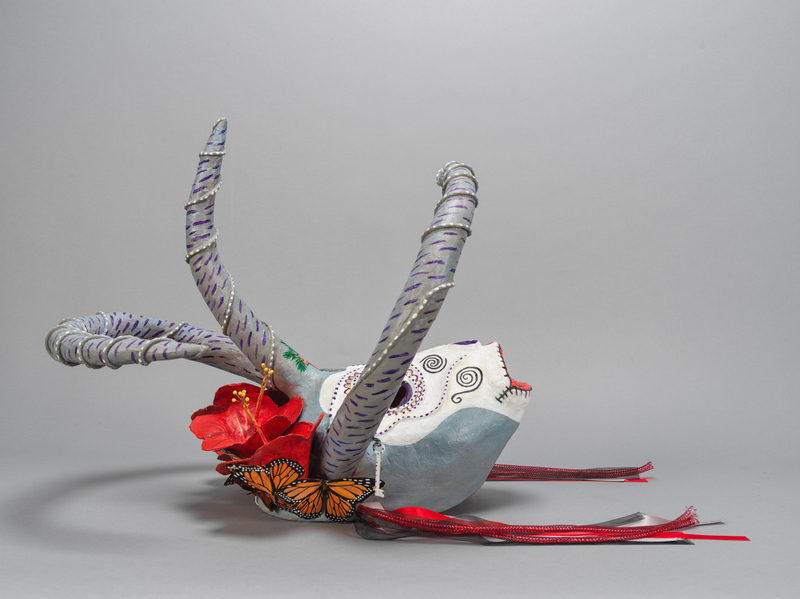Mask Item Number: 3428/2 from the MOA: University of British Columbia




Description
Vejigante carnival mask of painted paper mache construction. Mask is mainly painted a light grey-blue, with purple and white dots, and purple dashes on the horns. The white face with cut-out holes at the eyes and mouth. There are floral-like designs in gold and purple that spiral out from around the eyes. The eye sockets and nostrils are painted purple, with large false lashes glued to the upper edge of the eye sockets. Three long curved horns project out from the top and sides. The top, centre horn extends up, and curves forward, and has a small gold cross in front of green fern-like leaves. The right horn curls forward, in front of the face, and the left horn curls up and over the head. The top of the head is lined with four large red flowers with yellow stamens, and two orange and black butterfly. On both sides, a small painted white metal key hangs from the horns. The snout has a large open mouth with black stitching along the lips, and three pointed white teeth with red gums. Black, grey and red ribbons are tied to each side of the mask and hang down. The interior is painted red. Signed and dated inside.
History Of Use
For performances during Carnival in Puerto Rico or in Puerto Rican communities in the US. Based on Taíno iconography.
Cultural Context
Contemporary Puerto Rican Vejigante mask.
Narrative
The Taíno are a historic indigenous people of the Caribbean. In the late 15th century, they were the principal inhabitants of Cuba, Dominican Republic, Jamaica, Haiti, Puerto Rico and the Bahamas, who spoke a dialect of the Arawakan language. The maker identifies as having Taíno heritage.
Iconographic Meaning
Day of the Dead mask, in homage to those who died from Hurricane Maria, a deadly Category 5 hurricane that devastated the northeastern Caribbean in September 2017, particularly Dominica, Saint Croix, and Puerto Rico. Huracan was the name given by the Taíno of Boriken (now Puerto Rico) for the god that sent the wind of destruction. Hurricanes were considered a warning to the people to change their ways.
Item History
- Made by Juan M. Roman Jr. (Maker) in Chicago, Illinois, USA during 2019
- Owned by Juan M. Roman Jr. before July 2, 2020
- Received from Juan M. Roman Jr. (Donor) on July 2, 2020
What
- Name
- Mask
- Identification Number
- 3428/2
- Type of Item
- mask
- Material
- paper, paste adhesive, paint, gesso, metal and synthetic fibre
- Overall
- height 55.0 cm, width 46.0 cm, depth 44.5 cm
Who
- Culture
- Puerto Rican
- Creator
- Juan M. Roman Jr. (Maker)
- Previous Owner
- Juan M. Roman Jr.
- Received from
- Juan M. Roman Jr. (Donor)
Where
- Holding Institution
- MOA: University of British Columbia
- Made in
- Chicago, Illinois, USA
When
- Creation Date
- during 2019
- Ownership Date
- before July 2, 2020
- Acquisition Date
- on July 2, 2020
Other
- Condition
- good
- Accession Number
- 3428/0002